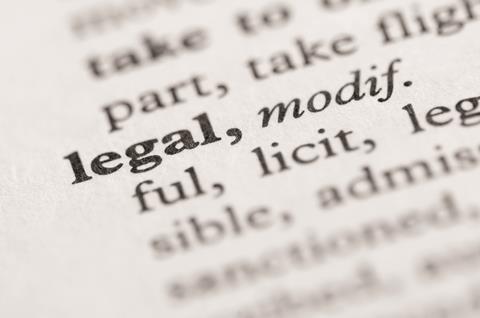Kate Onions and Laura Taylor on the due diligence solicitors must exercise in engaging an expert witness
Some 20 years on from the introduction of the Civil Procedure Rules, using hired guns, or expert witnesses answering in court to the party instructing them, is still common in the building industry.
The results of the Times  and Bond Solon Annual Expert Witness Survey 2019 show clearly that a number of experts are still failing to exercise their basic duties when giving evidence. Acting as an industry benchmark, the survey provides insight into what experts think of industry regulation and focuses on individuals’ roles and responsibilities.

Given the nature of the construction industry, expert insight is often essential where disputes are concerned. In technical cases, parties and their solicitors are reliant on an expert’s in-depth knowledge to assess the relative merits of a claim or, conversely, a defence to a claim on issues of liability and/or quantum. Inaccurate expert guidance not only inhibits the chances of reaching a pre-trial settlement but can also significantly increase the costs incurred by the parties. Where technical evidence is muddied and unclear or simply incorrect, the issues to be considered in any form of alternative dispute resolution, such as mediation, stand little chance of being extracted. This can make finding that all-important middle ground for the parties a lot more difficult and potentially prevent a settlement from being reached.
If the expert evidence is insufficient, they consequently become exposed to the cost risks involved
Often parties and their solicitors will be guided by the expert evidence in respect of technical and quantum issues when assessing the merits of a case. So if the expert evidence is skewed, for example, by being overly optimistic, the perception of the merits of the case will also be skewed. Parties involved in construction disputes are more likely to pursue or defend claims that are supported by expert evidence. If the expert evidence is insufficient, they consequently become exposed to the cost risks involved; this can mean paying the opposing side’s costs, as well as their own, if things go wrong at trial.
The results of the survey indicate a strong concern surrounding experts who do not understand their role or who are not properly qualified. But how can this be better managed and improved?
The majority of respondents in the survey believe there should be sanctions where experts act as hired guns
Some consider that the reputational damage an expert suffers when publicly called out for failing to be impartial is enough of a deterrent. However, the majority of respondents in the survey believe there should be sanctions where experts act as hired guns. In extreme instances of non-compliance, some have suggested that judges should be able to permanently disqualify experts. Others have proposed temporary suspension or a “three strikes and out” rule, alongside consistent recommendation for training.
The introduction of formalised training overseen by the professional bodies would be beneficial, especially if the experts received formal certification once completed. The training could therefore be structured to ensure that experts are up to date in their professional field and that they fully understand their duties and obligations as an expert. A public register of experts who had completed the training might also help to filter out hired guns.
Around 70% of the respondents to the survey consider that the instructing solicitor should be liable for costs if they fail to exercise due diligence in the selection and instruction of an expert witness. However, such an approach fails to recognise that sometimes parties have already engaged an expert prior to instructing solicitors and insist this expert is retained. In such circumstances, the solicitor may have little to no influence or control over which expert is engaged and whether this is based on the merits of their credentials.
Solicitors should be able to take experts at face value and expect them to be honest and upfront
Where solicitors are asked to instruct experts, the credentials of the expert should be properly considered. However, the extent of due diligence that is carried out must be proportionate as detailed vetting processes can quickly become costly and time consuming, which will not be justified in all cases. Solicitors should be able to take experts at face value and expect them to be honest and upfront about their capabilities and experience. Perhaps an apportionment of costs between solicitors and experts may be more reasonable, depending on the background facts.
Once instructed, solicitors should remind experts of their duties and encourage them to consider all possible arguments, not just those which suit and favour the party’s needs. Experts should not be alarmed if solicitors ask questions about their findings; not only does this help solicitors understand the technical evidence, it also highlights the strengths and weaknesses of the case. Such detailed analysis may assist in preparing the expert for cross-examination at a future date. That is not to say, however, that solicitors and clients should seek to influence the expert’s findings. Also, experts should not feel pressured into amending their conclusions at the request of a third party – after all, it is their independent expert view that is significant here. It is important that experts are reminded at all key stages that their duty is to the court and not to the party paying their fees.
Questions remain around whether any changes will be implemented to improve the impartiality of expert witnesses, but the volatile nature of the construction industry means disputes will continue to arise requiring expert input. It is beneficial to the industry as a whole that experts remain independent and comply with their duties, rather than simply being biased hired guns.
Kate Onions is head of construction disputes and Laura Taylor a construction expert at Shakespeare Martineau



























No comments yet